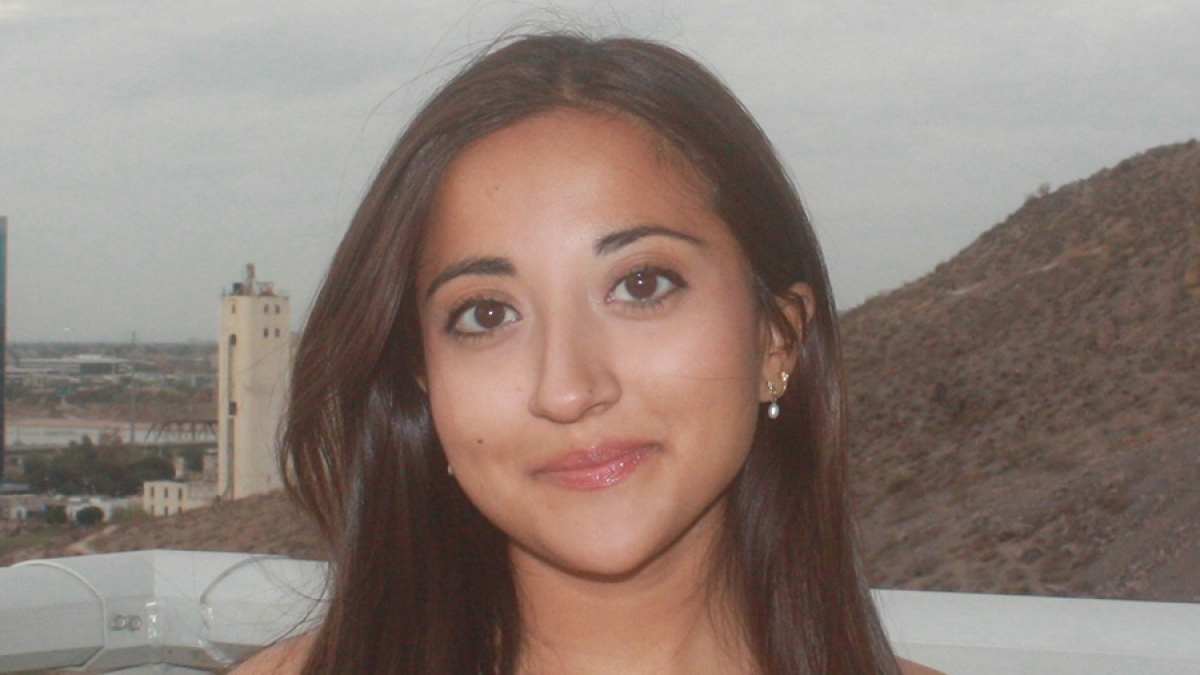Editor’s note: This story is part of a series of profiles of notable fall 2023 graduates.
In a world where science often intertwines with the unexpected, new 2023 fall graduate Ayesha Babbrah has journeyed from a curiosity with the wooly mammoth to a career in biotechnology.
"Science has always been my niche,” Babbrah said, reflecting on her initial draw to the field. “The freedom to make mistakes and exist in a space where information is delightfully unpredictable has always appealed to me.
“My decision to pursue a major in molecular biosciences and biotechnology started, strangely enough, after learning about the attempt to clone a wooly mammoth. The approach combined bioinformatics and genetic engineering, and I was engrossed in the potential of these technologies. Almost 10 years later, and my enthusiasm for the field continues to grow."
During her time at ASU, Babbrah, whose passion for science and innovation knows no bounds, worked in the Biodesign Center for Environmental Health Engineering and took what she said was her favorite class, taught by Lee Hartwell, who leads the Biodesign Pathfinder Center.
At ASU, she found herself immersed in a setting of rigorous academic standards and diverse perspectives.
“As an Arizona native, I felt like I’ve been a part of the ASU community for years before attending. The impact of the university reaches statewide, with endless opportunities for involvement, volunteering and education. Despite its familiarity, I really felt that the school presented itself as a ‘global village’ of sorts, like an environment that was rich in diversity and extensive in its educational pursuits. I think a lot of that comes to life with the school’s principles of inclusion.”
This unique environment allowed her to explore the intersections of various scientific disciplines, fostering an interdisciplinary approach to her studies.
The faculty at ASU played a pivotal role in shaping Ayesha's academic journey. She spoke fondly of Hartwell’s mentorship.
"I would say Dr. Leland Hartwell’s course, Research on Visual Cognition, was structured in a way that reflected the authenticity of learning. Open-ended discussions guided by a core interest in storytelling became a catalyst for students to collaborate, regardless of their knowledge of social science. It’s a must-take at ASU."
This approach to learning broadened her perspective, making her education as an undergraduate in the School of Life Sciences a more holistic experience. Perhaps the most significant lesson for Babbrah was learning to view failures as stepping stones.
“Don’t be afraid to fail. I wish I had learned sooner that failure is inevitable in academia (and beyond),” she said. “One of the most valuable publications that I have come across in my education was written by Melanie Stefan, who created a ‘A CV of failures.’ Behind her notable successes are a slew of failed exams, fellowship rejections and papers that were never accepted for publication. Reading her CV, and the likes of many other professionals that followed suit, gave me a new perspective on failure and the importance of resilience. Rejection is not a reflection of your abilities, but an opportunity to learn and try again.”
Read more below about Babbrah's experience at ASU.
Question: What’s something you learned while at ASU — in the classroom or otherwise — that surprised you or changed your perspective?
Answer: I think there’s a certain privilege that comes with being a student which allows you to foster your passion and creativity. At a school like ASU, you have an even bigger benefit of being in this huge amalgamation of talent and innovation. It’s a little daunting to be amongst professors and academics that are highly accomplished in their field, but the more time you spend learning from and with them, you realize that they are just people with genuine curiosity. They’re gracious to discuss their work and interests, and it is really an empowering experience to feel confident approaching people who have made an impact in their position.
Q: What was your favorite spot on campus, whether for studying, meeting friends or just thinking about life?
A: There’s a large grassy knoll surrounding Gammage that, in my opinion, is the best place on campus. It’s sort of a quiet, more secluded spot, which makes it the perfect place for a midday picnic. And, of course, the Wi-Fi reaches in case you need to study while enjoying the sunny weather. Just be aware of the sprinklers… they can be a little unpredictable in the spring.
Q: What are your plans after graduation?
A: After graduation, I plan on continuing my research in the Biodesign Center for Environmental Health Engineering, and soon after pursuing an MS in biotechnology and entrepreneurship. Remaining in the ASU community postgrad is something I’m really looking forward to, and I’m grateful for the opportunity to see through the projects that I have been a part of over the last few years.
Q: If someone gave you $40 million to solve one problem on our planet, what would you tackle?
A: Given $40 million, I would work to solve the global plastics problem. Until I began my research, I never fully understood the severity of plastic pollution’s effect on human health or the solutions that exist in bioremediation. I would continue to explore avenues to sustainably reduce environmental plastic waste and increase implementation of degradation techniques.
More Science and technology
Largest genetic chimpanzee study unveils how they’ve adapted to multiple habitats and disease
Chimpanzees are humans' closest living relatives, sharing about 98% of our DNA. Because of this, scientists can learn more about…

Beyond the 'Dragon Arc': Unveiling a treasure trove of hidden stars
NASA's James Webb Space Telescope (JWST) has set a new milestone: capturing images of over 40 individual stars in a galaxy so…

ASU selected as home and partner for CHIPS and Science Act-funded national facility for semiconductor advanced packaging
Following a week where a spirited effort by the Sun Devil football team captured the nation’s attention in the Peach Bowl, it is…
